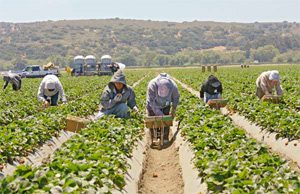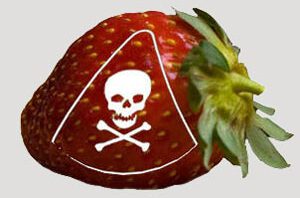September was a good month for wins against hazardous pesticides. China took steps to end the use of the persistent pesticide endosulfan — as did Mexico, which will ban it fully by January 2015. Costa Rica announced it will stop using the ozone-depleting pesticide methyl bromide. And El Salvador banned a host of pesticides in one fell swoop.
Many PAN partners and allies were involved in campaigns against these pesticides, and these health-protective actions from around the world are inspiring us in the U.S. to keep up the good fight.
This news of real progress reminds me once again that the deep commitment and hard work of PAN and our network partners makes victories possible in the face of seemingly insurmountable challenges.
This is the PAN International version of people’s power, and it works.
The PAN network brings the realities of pesticide-related harm into the spotlight to help convince decision makers to do the right thing. This takes myriad shapes — whether it be through the people’s tribunal organized by PAN in 2011 to highlight the costs of pesticide use to community health and livelihood, or through reports from the Global South and the U.S. about the health impacts of pesticide exposure.
It’s the stories of harm from communities — corroborated by scientific evidence and supported by solid knowledge of alternatives — that have helped make these changes happen. This is the PAN International version of people’s power, and it works.
The U.S. lags behind
In El Salvador hazardous pesticides like endosulfan, glyphosate, paraquat and chlorpyrifos were among 53 toxic chemicals that were banned recently. All of these chemicals remain in use here in the U.S. — some at high volumes.
It was the human health impacts of these hazardous agricultural pesticides that drove the government of El Salvador's ban. According to Fernando Bejarano of RAPAM, a PAN group based in Mexico:
“The exclusion order was given after a protest and social media coverage for the high number of deaths and cases of chronic renal failure … in most patients diagnosed risk factors identified are [exposure to] environmental toxicants and agricultural occupation.”
The chemicals banned in El Salvador are linked to a host of human health harms, ranging from Parkinson’s disease (linked to paraquat exposure) to reduced IQs and brain development delays in kids (linked to exposure to chlorpyrifos).
The fumigant pesticide methyl bromide is a carcinogen, a neurotoxin and can also cause birth defects. It's been slated for worldwide phaseout as an ozone-depleting chemical for years, but it continues to be used to sterilize the soil in strawberry fields in California and Florida.
Methyl bromide is highly volatile, drifts away from application sites and affects surrounding communities. Costa Rica’s decision to refuse the use of methyl bromide due to human health concerns, should shake up decision makers at EPA who are allowing continued use here.
System change: Shifting to agroecology
While I'm thrilled by the success stories from China, El Salvador, Mexico and Costa Rica, I think we must not forget about the bigger goal: the need for a comprehensive and progressive ban of all Highly Hazardous Pesticides, worldwide.
Agroecology combines cutting-edge science with local knowledge and experimentation.
Fighting against one pesticide at a time conceals the fact that it isn’t just individual pesticides which are culprits (though of course they are harmful!), it is the system of industrial agriculture itself which is at fault. This model of agriculture encourages the use of pesticides at the cost of healthy farmers, healthy communities and the environment.
The smart, low-impact yet high-yield way forward is adopting agroecology, a model of agriculture that combines cutting-edge science and scientific inquiry with local knowledge and experimentation. Agroecology emphasizes technology and innovations that are knowledge-intensive, low cost, ecologically sound and practical.
And agroecological approaches have been shown to have good yields too — comparable to and sometimes better than industrial agriculture yields. A case in point is Costa Rica’s decision against methyl bromide, which goes hand-in-hand with increased support for farmers in that country using safer, high-yield agroecological practices.
Here’s hoping that such victories around the world for practical, safe and productive farming pave the way for policy change here in the U.S. as well.







